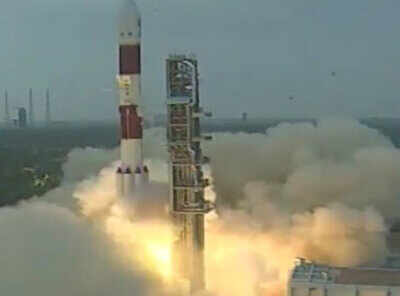- News
- India News
- ISRO launches Remote-sensing satellite to aid farm sector
Trending
This story is from December 8, 2016
ISRO launches Remote-sensing satellite to aid farm sector
The satellite, launched by ISRO’s Polar Satellite Launch Vehicle (PSLV) from Sriharikota, will relay specific data on crop area and crop production estimation, drought monitoring, soil mapping and cropping system analysis to generate farm advisories.

ISRO's RESOURCESAT-2A satellite was launched at Sriharikota on December 7, 2016.
NEW DELHI: India successfully launched on Wednesday its latest remote-sensing satellite, RESOURCESAT-2A, which would send data useful for various agricultural applications in the country. The satellite, launched by ISRO’s Polar Satellite Launch Vehicle (PSLV) from Sriharikota, will relay specific data on crop area and crop production estimation, drought monitoring, soil mapping and cropping system analysis to generate farm advisories.
It will be brought to its final operational configuration in the coming days before it starts sending imagery from its three cameras.
Though the ISRO has been providing such information using its existing satellites, RESOURCESAT-2A will improve its capability and help policymakers take farm-related decisions based on more accurate ground information. “More specific data will reduce our dependence on random figures which most of the times drive us away from the ground reality.
Exact details of sown area and crop production will help us in taking right decisions at the right time,” said an agriculture ministry official. Reliable information on crop acreages, timely forecasts and estimates of production and yields are important for domestic and foreign trade as well as for various downstream and upstream activities.
It will be brought to its final operational configuration in the coming days before it starts sending imagery from its three cameras.
Though the ISRO has been providing such information using its existing satellites, RESOURCESAT-2A will improve its capability and help policymakers take farm-related decisions based on more accurate ground information. “More specific data will reduce our dependence on random figures which most of the times drive us away from the ground reality.
Exact details of sown area and crop production will help us in taking right decisions at the right time,” said an agriculture ministry official. Reliable information on crop acreages, timely forecasts and estimates of production and yields are important for domestic and foreign trade as well as for various downstream and upstream activities.
End of Article
FOLLOW US ON SOCIAL MEDIA











